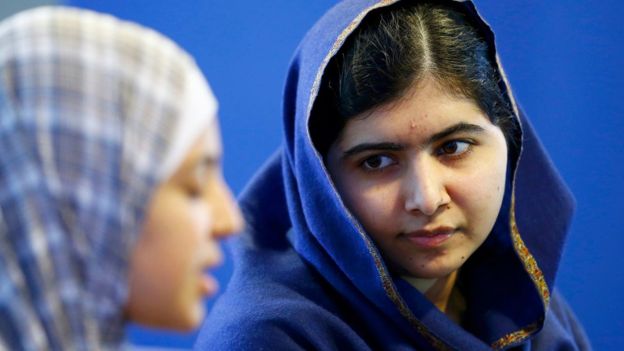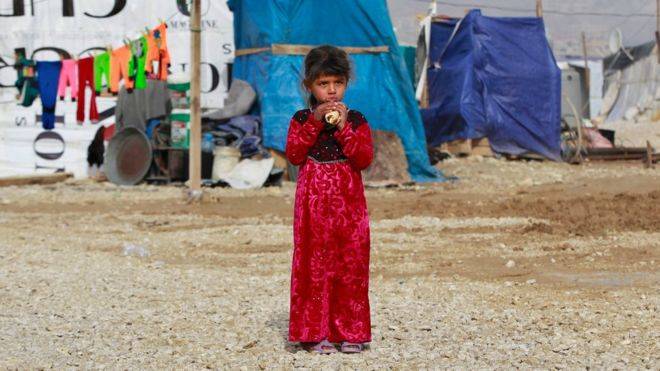Tens of millions of Pakistani children will struggle to lay their hands on the book written by Malala Yousafzai after the organisation representing the country's private schools decided to ban it.
The All Pakistan Private Schools Federation, which says it represents more than 152,000 institutions across the country, has decided that allowing pupils to read the book, I am Malala, would have a "negative" effect on them. The federation also said it believed the book was not entirely respectful of Islam.
The book will not be included in the schools' curriculum, nor will it be stocked in school libraries. Pakistan's most elite schools belong to the federation. The government does not plan to teach it in state schools, though it is not banned.
"The federation thought we should review the book, and having reviewed it we came to the decision that the book was not suitable for our children, particularly not our students," said the federation's president, Mirza Kashif. "Pakistan is an ideological country. That ideology is based on Islam.... In this book are many comments that are contrary to our ideology."
The book, written jointly by the teenage education campaigner who was shot last year by the Taliban, and a British journalist, Christina Lamb, was published last month to widespread international enthusiasm. The 16-year-old tells of her life in the Swat Valley where her father ran a private school when it was under Taliban rule, of writing an anonymous blog for the BBC, and of her campaign for girls' education.
Yet in Pakistan, the reaction to Malala and her book has been mixed. Many have claimed she has been used by the West for its own interests. The Taliban threatened to attack bookshops that stocked it.
Mr Kashif, who said 25 million pupils attended private schools in Pakistan, claimed that in the book Malala had defended the writing of Salman Rushdie on the grounds of free speech and had failed to use the abbreviation PUH "peace be upon him" when referring to the prophet Mohamed. He said there was a sense that Malala had not written large parts of the book, because it referred to things that happened before she was born.
Observers say the ban comes amid discussions in Pakistan about Malala's actions. It also follows recent controversy at a celebrated Lahore private school that started teaching sex education.
"The decision to ban the book is the result of a deliberate smear campaign run against Malala and the book by right-wing commentators," said Bina Shah, a Karachi-based novelist and education campaigner. "There has been complete confusion about the book, sown very deliberately in the minds of adults because of this right-wing talk."
In Pakistan, some of Malala's strongest supporters are schoolgirls. Yet pupils from Lahore's exclusive Bloomfield Hall School, where fees are £116 a month, held mixed views about the book.
Zonash Raza, 15, said she sympathised with Malala, yet believed her speech at the United Nations was damaging to the country's reputation. "The world already gets to hear a lot of corruption stories about Pakistan and this is only going to add to that same image," she said. Yumna Afzal, 16, said Malala was an inspiration for girls across the country and that she had revealed the importance of education.
"The decision [to ban the book] is completely wrong and it is a conspiracy to show Malala as a US puppet," she said. "I have heard talk shows on TV where people are claiming Malala is fake and the injuries she received are not real, but I really don't agree with them. She is a hero and an inspiration."
Ramsha Shoaib, 15, said: "Personally, I think it was a biased decision to send Malala to the UN to represent Pakistan because there are millions of other girls who are suffering far greater hardships, but are never noticed or sent to the UN.... She is giving a very negative image to the world outside. She, being a girl, was supposed to portray a positive image of the country."
A recent briefing document prepared by Unicef suggested Pakistan faced a "myriad of challenges" in its efforts to educate its youngsters. Indeed, after Nigeria, Pakistan has the second highest number of unschooled children in the world.
The situation is especially poor for girls, particularly in rural areas. In the remote tribal areas that border Afghanistan, Unicef says that maybe only one in five girls attends school. Across Pakistan, adult literacy for women stands at 45 per cent, compared with 70 per cent for men.
Mr Kashif, the federation president, said that more than half of children in Pakistan attended private schools. He said half of all pupils were girls and that women made up 90 per cent of teaching staff. He said if Malala agreed to changes to the book, the federation would review its decision. He denied the ban was prompted by fears of attacks.
"We are the biggest supporters of Malala. The private schools shut down [when she was shot]. We all support her, we are not against her. She is our daughter," he said. "If she would look at these things and take measures not to hurt the emotions of Muslims, we will welcome it."
Inspiration or danger? Private schools in Pakistan ban Malala Yousafzai's book - Asia - World - The Independent
The All Pakistan Private Schools Federation, which says it represents more than 152,000 institutions across the country, has decided that allowing pupils to read the book, I am Malala, would have a "negative" effect on them. The federation also said it believed the book was not entirely respectful of Islam.
The book will not be included in the schools' curriculum, nor will it be stocked in school libraries. Pakistan's most elite schools belong to the federation. The government does not plan to teach it in state schools, though it is not banned.
"The federation thought we should review the book, and having reviewed it we came to the decision that the book was not suitable for our children, particularly not our students," said the federation's president, Mirza Kashif. "Pakistan is an ideological country. That ideology is based on Islam.... In this book are many comments that are contrary to our ideology."
The book, written jointly by the teenage education campaigner who was shot last year by the Taliban, and a British journalist, Christina Lamb, was published last month to widespread international enthusiasm. The 16-year-old tells of her life in the Swat Valley where her father ran a private school when it was under Taliban rule, of writing an anonymous blog for the BBC, and of her campaign for girls' education.
Yet in Pakistan, the reaction to Malala and her book has been mixed. Many have claimed she has been used by the West for its own interests. The Taliban threatened to attack bookshops that stocked it.
Mr Kashif, who said 25 million pupils attended private schools in Pakistan, claimed that in the book Malala had defended the writing of Salman Rushdie on the grounds of free speech and had failed to use the abbreviation PUH "peace be upon him" when referring to the prophet Mohamed. He said there was a sense that Malala had not written large parts of the book, because it referred to things that happened before she was born.
Observers say the ban comes amid discussions in Pakistan about Malala's actions. It also follows recent controversy at a celebrated Lahore private school that started teaching sex education.
"The decision to ban the book is the result of a deliberate smear campaign run against Malala and the book by right-wing commentators," said Bina Shah, a Karachi-based novelist and education campaigner. "There has been complete confusion about the book, sown very deliberately in the minds of adults because of this right-wing talk."
In Pakistan, some of Malala's strongest supporters are schoolgirls. Yet pupils from Lahore's exclusive Bloomfield Hall School, where fees are £116 a month, held mixed views about the book.
Zonash Raza, 15, said she sympathised with Malala, yet believed her speech at the United Nations was damaging to the country's reputation. "The world already gets to hear a lot of corruption stories about Pakistan and this is only going to add to that same image," she said. Yumna Afzal, 16, said Malala was an inspiration for girls across the country and that she had revealed the importance of education.
"The decision [to ban the book] is completely wrong and it is a conspiracy to show Malala as a US puppet," she said. "I have heard talk shows on TV where people are claiming Malala is fake and the injuries she received are not real, but I really don't agree with them. She is a hero and an inspiration."
Ramsha Shoaib, 15, said: "Personally, I think it was a biased decision to send Malala to the UN to represent Pakistan because there are millions of other girls who are suffering far greater hardships, but are never noticed or sent to the UN.... She is giving a very negative image to the world outside. She, being a girl, was supposed to portray a positive image of the country."
A recent briefing document prepared by Unicef suggested Pakistan faced a "myriad of challenges" in its efforts to educate its youngsters. Indeed, after Nigeria, Pakistan has the second highest number of unschooled children in the world.
The situation is especially poor for girls, particularly in rural areas. In the remote tribal areas that border Afghanistan, Unicef says that maybe only one in five girls attends school. Across Pakistan, adult literacy for women stands at 45 per cent, compared with 70 per cent for men.
Mr Kashif, the federation president, said that more than half of children in Pakistan attended private schools. He said half of all pupils were girls and that women made up 90 per cent of teaching staff. He said if Malala agreed to changes to the book, the federation would review its decision. He denied the ban was prompted by fears of attacks.
"We are the biggest supporters of Malala. The private schools shut down [when she was shot]. We all support her, we are not against her. She is our daughter," he said. "If she would look at these things and take measures not to hurt the emotions of Muslims, we will welcome it."
Inspiration or danger? Private schools in Pakistan ban Malala Yousafzai's book - Asia - World - The Independent



